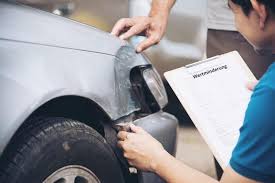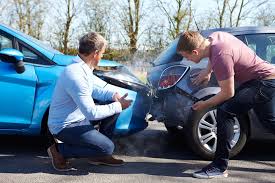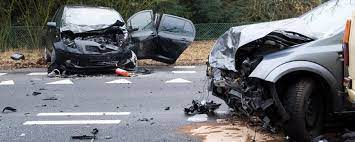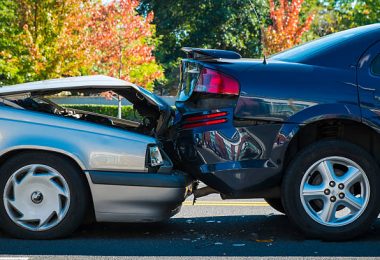How does a vehicle depreciate after an accident; depreciation is a concept that many people are familiar with, especially those who have owned their own vehicle. However, there are some who do not understand how depreciation works and what factors influence it. In this article we will discuss the ins and outs of vehicle depreciation after an accident by going through all the factors that can affect it and how they do so.
Vehicle Depreciation Rates
Vehicle depreciation rates are different for each of the following categories:
- Type of vehicle. Depreciation rates vary based on make and model. For example, luxury SUVs depreciate faster than economy cars.
- Age of vehicle. The older a car is, the more it will depreciate in value over time (since it will eventually reach its “used” value). A five-year-old Toyota Camry may be worth less than half its original purchase price after only two years on the road.
- Condition of vehicle. A car that has been wrecked or otherwise damaged by an accident will lose its resale value even faster than usual; these vehicles often end up being scrapped or sold at auction to junkyards or salvage yards instead of being sold as used cars due to their poor condition and lack of safety features after an accident
How Value is Estimated after Accidents
While it’s true that all vehicles depreciate after an accident, the rate at which your vehicle loses value varies from vehicle to vehicle. That’s because depreciation rates are not constant across the board. In order for you to understand how much your car may depreciate after an accident, you’ll need to know a few things:
- The type of accident involved in the collision (single-car or multi-car)
- The type of vehicle involved in the collision (SUV vs sedan)
- Where exactly on your car was damaged
When you buy a vehicle, it will depreciate in value over time. However, an accident can accelerate that process and make your car less valuable than what it was before the accident occurred. If you are considering selling your car after an accident, then you need to know how this will affect its value.
How a vehicle depreciation is calculated depends on several factors.
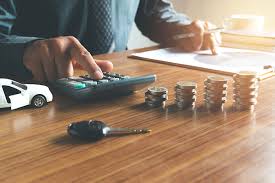
Depreciation is a measure of the decrease in value of an asset over time. To calculate depreciation, you need to know how much it cost you to buy something (original price) and how much you can sell it for now (selling price). The difference between the two is your depreciation.
For example: You purchased a car for $20,000 and want to sell it today at an auction. The current market value is $10,000, so if your selling price was less than that amount you would have experienced depreciation on your vehicle purchase because the current market value is lower than what you paid for it originally.
The rate of depreciation depends on several factors including:
The degree of damage to a vehicle following an accident will have a significant impact on its value.
The degree of damage to a vehicle following an accident will have a significant impact on its value. The age of the vehicle is also a factor, as well as how many owners it has had during its lifespan. The amount of mileage accumulated on a vehicle can also affect its worth.
The severity of the accident will affect your vehicles value.
What the accident did to your vehicle will affect its value. If a car is totaled, it will not be worth as much as one that is undamaged. The following factors can help you determine how much the value of your vehicle has depreciated due to an accident:
- How much damage was done? If a vehicle had extensive damage, it may not be worth fixing and could be considered totaled instead. In this case, insurance companies will pay for the cost of repairing or replacing it with a similar model from their own fleet or another company’s fleet if yours does not carry replacement vehicles for this purpose.
- How long will it take to fix? Depending on where you go and what type of repair needs to be done, there might be some waiting involved before getting back on the road again. The longer this takes means less time driving around town in your car while other people are taking theirs out, which leads us right into our next point…
- What do repairs cost? Accidents aren’t cheap! While some cars can withstand small bumps without major consequences , others require significant investments in terms of time spent at auto mechanic shops and money paid out-of-pocket by consumers themselves after submitting claims through insurance companies; these expenses may ultimately add up significantly enough over time as well if they’re ongoing issues affecting individuals who live paycheck-to-paycheck rather than having savings set aside specifically for such emergencies.”
How many owners has the vehicle had?
The second factor to consider is how many owners the car has had. The more, the less value it will have.
You can find out this information by checking a vehicle’s title history report and asking any potential seller for their title history report as well. If you’re selling your car and don’t know its past ownership history, look into getting a title history report so that you can know exactly what you’re dealing with before agreeing on a price with someone else.
Does your vehicle have additional mileage?
- Additional mileage on your vehicle will affect its value. The more miles that have been put on a vehicle, the less it will be worth. You can find out how much mileage is too many by consulting a car valuation guide or looking up the average number of miles driven per year for your particular make and model.
- How much additional mileage affects your car’s value depends on what type of vehicle it is; most vehicles lose 10% of their value every 10,000 miles. However, heavy-duty trucks and SUVs tend to lose 15% per 10k.
- If you want to keep extra miles off your car, avoid driving in unpaved areas or at high speeds (both can wear down tires faster). And make sure that you properly maintain all aspects of your vehicle, including oil changes, regular tire maintenance and keeping an eye out for leaks or other problems—so that it stays safe for years!
What is the age of the vehicle?
Age is one of the biggest factors in how much depreciation occurs after an accident. The older a car is, the more it will depreciate. If you’re looking at two vehicles that are similar in age but different makes and models, go with the newer one if you can afford it.
Your vehicles value will be affected by several factors following an accident.
The amount of depreciation your vehicle will experience following an accident depends on several factors, including:
- Age and mileage
- Condition
- Brand-new versus used vehicle (i.e., how long the car has been on the market)
Depreciation is calculated using a formula that also takes into account things like demand for certain makes or models, special features that increase or decrease value, and even how well you take care of the car. For example, if your car has sustained significant damage in an accident but is still operable then it may be worth less than one that’s completely undamaged after only a few miles on the odometer because there’s potential for future repairs or replacement parts costs down the road.
Conclusion
The value of a vehicle can be affected by many factors. The severity of the accident, the age of your car and how many owners it has had can all make a significant difference. After an accident, the value of your vehicle will change. The amount of depreciation depends on several factors, including the type of accident and how extensive the damage is. If your insurance company estimates that your car is a total loss, they’ll give you enough money to buy another one with some cash left over. And if they think your car can be repaired, they’ll pay less than what it would cost to replace it with another similar model because those repairs will cost more than new parts would cost on their own (plus labor costs).

